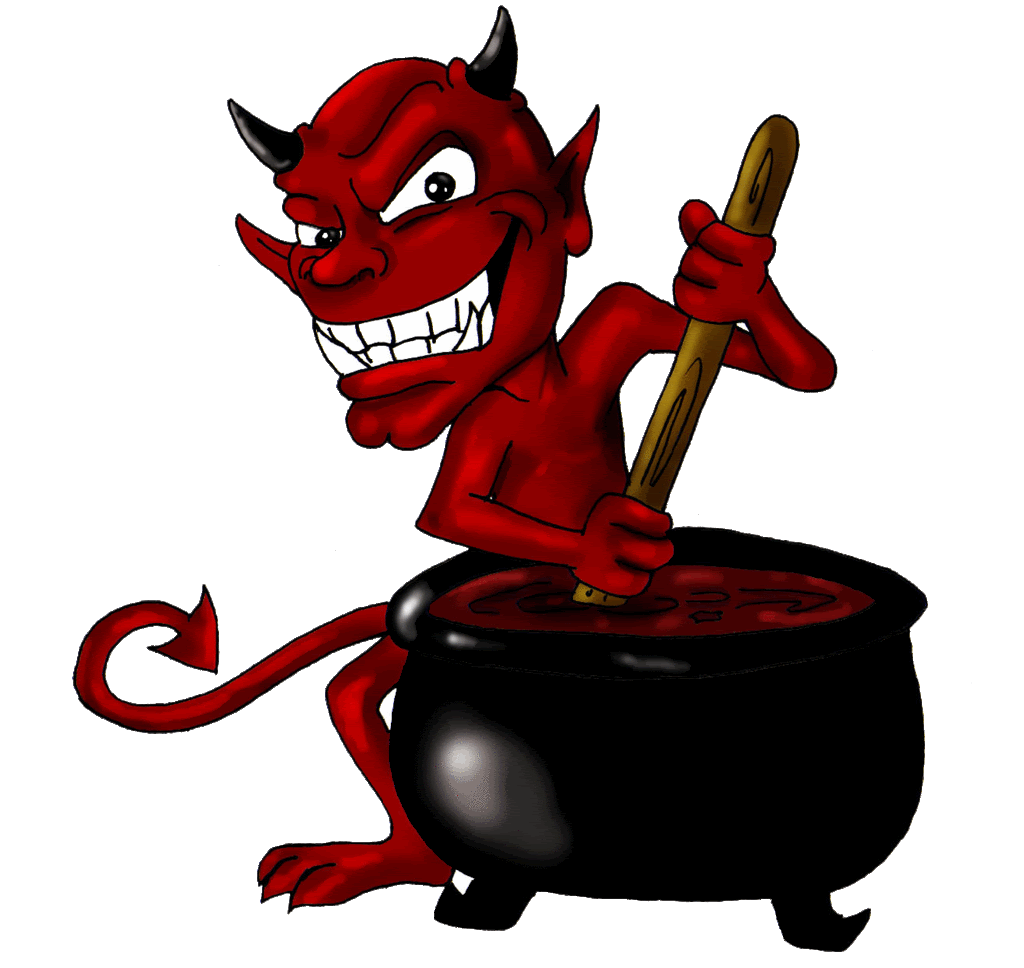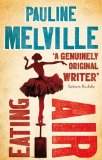Pauline Melville is an award winning author. Her collection of short stories, Shape-shifter (1990), won the Commonwealth Writers Prize (Overall Winner, Best First Book) and the Guardian Fiction Prize. Her first novel, The Ventriloquist’s Tale
(1997), won the Whitbread First Novel Award and was shortlisted for the Orange Prize for Fiction.
I struggled to connect with her most recent novel, Eating Air (see my review) as it contained a large number of evil characters. I was intrigued as to why she loves evil characters so much. Here is her explanation:
 It’s the evil characters who often bring fiction to life. From the beginning we are enthralled by fairy tales – the wicked witch, the evil step-father, the malevolent goblin. If Hansel and Gretel just munched their way through a sugar candy house with no witch in it, who would care less? Martin Amis said that “happiness writes white. It doesn’t show up on the page.” Evil characters are more memorable, enjoyable and spine-chilling than goody-goodies. They are the ones who enthrall. Even the most vicious of characters usually have something to recommend them. Captain Hook played the flute and enjoyed reading Wordsworth and Coleridge and was a stickler for ‘form’. He did, however, learn those outward trappings of civilisation at Eton – a warning for us all come the next election.
It’s the evil characters who often bring fiction to life. From the beginning we are enthralled by fairy tales – the wicked witch, the evil step-father, the malevolent goblin. If Hansel and Gretel just munched their way through a sugar candy house with no witch in it, who would care less? Martin Amis said that “happiness writes white. It doesn’t show up on the page.” Evil characters are more memorable, enjoyable and spine-chilling than goody-goodies. They are the ones who enthrall. Even the most vicious of characters usually have something to recommend them. Captain Hook played the flute and enjoyed reading Wordsworth and Coleridge and was a stickler for ‘form’. He did, however, learn those outward trappings of civilisation at Eton – a warning for us all come the next election.
The most memorable characters in fiction are often those whose evil is not fully comprehensible – not clearly motivated by greed or lust or a mania for power, in other words those characters who have transcended the rationalism of the author and become a dangerous life force of their own. Take Stavrogin in Dostoievsky’s The Possessed; a charming, intelligent, handsome man who even frightens his own mother and whose deeds are riveting, horrific and inexplicable. And take the pilot in Bolano’s Distant Star who writes extraordinarily beautiful and exhilarating poems in the sky and turns out to be a murderous fascist.
Writers sometimes make an evil character the hero or heroine despite themselves – without quite realising what they are doing. In Paradise Lost, Milton’s Satan is so much more attractive than boring old God – although Milton would probably be upset at that judgement. When Tolstoy started writing he thought Anna Karenina was a thoroughly nasty piece of work but somehow by the end of the book she had become one of the most sympathetic heroines in fiction. A villain more in tune with current times is American Psycho’s Patrick Bateman, the smiling, psychopathic face of Wall Street, who is hilarious and terrifying in equal measure.
There exists, of course, a whole argument as to whether there IS such a thing as evil. A writer like Kafka sees evil embodied in a whole system rather than a particular character. Hannah Arendt has written about the banality of evil and the possibility of us all contributing to it through bureaucratic detachment or the willingness of good men to do nothing, rather than specifically wicked actions. These notions of evil are more difficult for a writer to depict.
However, many works of fiction depend on that struggle between good and evil and the moral decisions which lead a character one way or the other and for us writers, there is often an energy in creating a ‘baddie’ which is more difficult to dredge up when we are creating the ‘goodies’.
When I was writing ‘Eating Air’ one of the main characters, Donny McLeod became hugely pleasurable to create; the more amoral he became the more attractive and vivid he was on the page. Another minor character– Hetty Moran – clearly a baddie, became equally powerful. I can still feel her knocking on the side of my imagination demanding another whole novel to herself.
Thank you Pauline! You mention some great books and your argument is a convincing one. I agree that evil characters are often more memorable than the good ones, but I still like to read about the good guys.
What do you think?
Is it important to have evil characters in literature?
Do they need to be balanced by good characters, or do you love books which only contain evil ones?
24 replies on “Evil in Fiction – Guest Post by Pauline Melville”
A really interesting post!
Yes, I agree that we need not necessarily evil, but at least flawed, characters. I don´t mind reading about good and happy people, but real human beings are usually a mixture of good and bad sides.
When I was younger, I didn´t think about it much, but there is a Canadian crime series I like very much which has ONE flaw: the protagonist is simply too good to be true. He is almost saintly even though his superiors are corrupt and treat him horribly. That aspect of the series is boring in my opinion.
Dorte, I had a similar problem in real life. I once worked with a man who was just too nice. He seemed to have no flaws and I started to think that he just couldn’t be trusted. Noone can really be that nice and like everything/everybody -can they? To this day I still wonder if he really was nice or it was just a front!
A fascinating post. I agree with Dorte, seeing people’s flaws makes them more interesting than being good people. However, with evil characters I like them to have the possibility of redemption – that makes them more complicated too.
Annabel, I do love it when an evil character turns good, but I’m not sure I need the possibility of redemption to make an interesting book. Sometimes it is good to know where everyone stands!
I do love me some evil characters and Pauline explained why perfectly! Thanks for this post Jackie.
Pam, I’m pleased you liked it!
I’m not crazy about inexplicably evil characters – which I suppose is because I always think that people are basically good – but I do love a baddie. It’s fun to have them be really extravagantly wicked, but I also like it when the “evil” characters prove to be just shabby, rather than truly wicked. Not diabolical masters of evil but just people who’ve chosen the easy way and had it lead them into bad places.
Jenny, Shabby characters aren’t really evil and I do enjoy reading about them – there is the redemption that Annabel talked about. I love your phrase “diabolical masters of evil” I haven’t read about any of those!!
I find the notion of evil and good characters curiously dated. They belong to an era of mass religious faith and clear moral delineations, neither of which really pertain today. Ambiguity seems to be more appropriate these days. Witness a character like Dexter, a serial killer who we are asked to empathise with because he kills bad guys… (Hannibal Lecter is given all the funny lines…) For me, so long as the character is portrayed with a depth of emotional intelligence, traits, neuroses as well as appealing characteristics, that is all I seek. The bad guy in “No Country For Old Men” is never really satisfactorily quarried as to where he emerges from so to me doesn’t work, whereas the themes f the rest of the book are superbly done. Also in “We Need To Talk About Kevin”, as fantastically written as the Mother is, the psychopathy of Kevin hangs limply unexplored and non-credible in comparison.
marc nash, Thanks for leaving a comment on my blog for the first time!
I have to disagree with you about ‘We Need to Talk About Kevin’ The book is about the unreliable narrator, the thoughts of the mother. The actual psychopathy of Kevin is irrelevant (but could be another book) what makes WNTTAK special is the way it explores the issues from the mother’s point of view. It is then up to the reader to decide how realistic the mother’s views were.
I loved the mother character in “Kevin”, but her psychology was so wonderfully and richly rendered, that the bits about Kevin were rather insubstantial by comparison and led me to ask whether they were needed at all, if they weren’t really going to contribute anything to the overall picture…
marc, I agree – perhaps they weren’t needed at all.
It depends how evil. We all have areas that we don’t wanna go to. But within certain limits, evil characters can be fun to read for sure. Or maybe to be more exact, complex characters. I hate it when some characters are just pure nice or pure evil.
Eating Air isn’t very appealing to me, but The Ventriloquist’s Tale has come up a few times to me now and it intrigues me.
mee, I haven’t read The Ventriloquist’s Tale, but it does really appeal to me. I have a copy here, so hope to read it soon.
I love that Amis quote. I do agree that the villains are often the most interesting … and who would our heroes struggle against if they did not exist. Neat post.
Jenners, I’m almost ashamed to admit that I haven’t read any Amis – I need to get round to it soon.
I love the evil characters! I do think you have to have good guys too, though, to create perspective. Take characters like Fumero in Shadow of the Wind, or even Professor Umbridge in HP 5…they were just deliciously awful. They make my stomach hurt and my blood boil, but how cool is that kind of reaction?
Sandy, That is the way I feel. It just didn’t feel right reading a book in which all the characters were evil – I need to find a character to love!
[…] This post was mentioned on Twitter by Next Read and Jackie Bailey, Karen Dash. Karen Dash said: RT @farmlanebooks: New blog post: Evil in Fiction – Guest post by Pauline Melville http://www.farmlanebooks.co.uk/?p=4127 […]
I’m perplexed by evil characters. One of my favorites is Iago, whose part in Othello is, if anything, bigger than the title characters’…and who says at the end of the play that he will never tell why he’s been so evil.
Jeanne, Characters that don’t explain why they are evil are great! It is the added intrigue that makes them special.
I think that there has to be a certain X-factor in evil characters. Like they have to not realize just how evil they are. That’s why William in Pillars of the Earth is one of my favorite evil characters in literature.
J.T. That X-factor needs to exist in all characters. Some of the people I read about are so flat – they need that special sparkle to make a book memorable.
I don’t mind evil characters at all. And I do agree that they can be memorable. And evil can just be the nasty kid or the evil stepmother or the really, really bad guy!